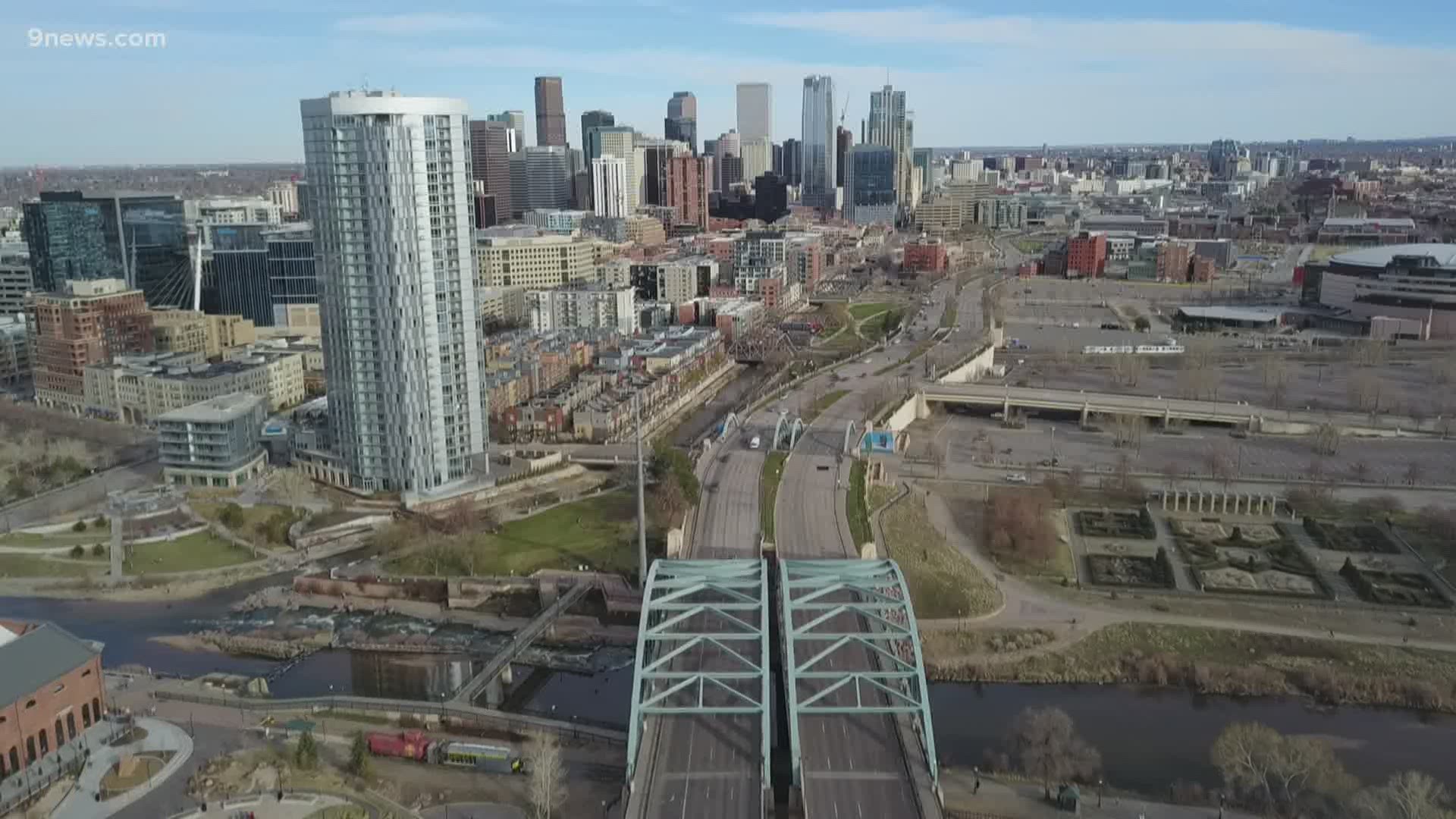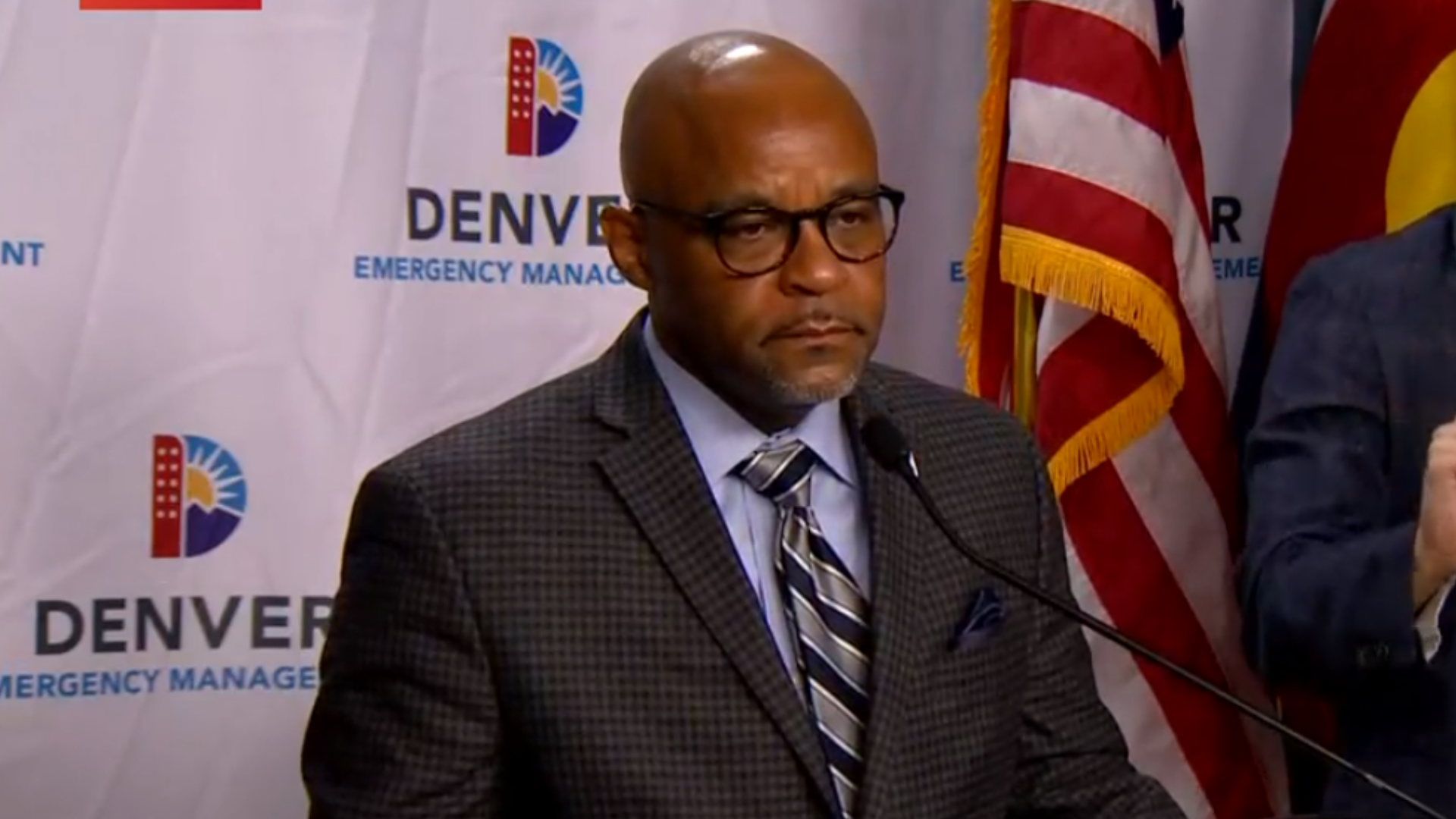DENVER — Mayor Michael Hancock described this week as a critical time for the Denver metro area as his team of city leaders plan for what life after a stay-at-home order would look like in the city.
In a news conference Monday morning, Hancock offered encouraging data that appears to show a slowing in both the number of COVID-19 cases and hospitalizations associated with it.
Hancock said 80% of all city hospital beds are open, one-third of Intensive Care Unit (ICE) beds are open and two-thirds of ventilators are available for use.
“These are encouraging signs that our efforts to stay at home and physically distance from one another are working,” Hancock said.
As it stands now, Colorado’s stay-at-home order is set to expire on April 26. A stay-at-home order for Denver lasts through the end of the month on April 30.
Hancock said that by the end of the week, he will be updating and extending a public health order restricting large events and gatherings in the city. Currently, the social distancing ordinance is set to expire on May 11.
Hancock also detailed what he said will be a “slow, phased and controlled reopening” of businesses, with many protective measures taken in the months to come.
“We as a city should anticipate these restrictions to remain in place for a while," he said. "Even after you no longer have to remain at home this will be a different summer for those of us in Denver, Colorado."
Hancock said a couple key factors need to happen over the next seven to 10 days before restrictions can be relaxed. That includes significantly increasing testing for COVID-19, along with testing for anti-bodies, and training and hiring staff for contact tracing.
Nearly 100 people in Denver have died as a result of COVID-19, many in nursing homes or long-term health care facilities. Hancock said there have been about 1,750 confirmed cases so far in Denver.
Here’s a look at other topics the mayor discussed during the news conference:
Women’s shelter opening at Denver Coliseum
Starting Monday at 2:30 p.m., the Denver Coliseum will open its doors to house up to 300 women and transgender individuals experiencing homelessness in the city.
The new shelter will provide each guest personal sleeping space of at least 60 square feet and provide them hot meals and a place to relax.
Guests will also receive greater access to medical care. Testing is available onsite for those who are medically advised to do so. Walk-up access is available at the facility from 8 a.m. to 8 p.m.
City-operated golf courses to reopen Wednesday
As of Wednesday, all city-operated golf courses will reopen to the public with a number of restrictions in place.
Anyone wanting to golf must make a reservation over the phone ahead of time for instructions on how to proceed through the course.
All golfers must keep a minimum of six feet of social distancing at all times.
Golfers are not to touch anyone else’s golf equipment and are required to use all their own equipment. Golf carts are available to rent but are limited to one person per cart.
Hancock also said Denver is going to start restricting the use of shared equipment like frisbees and footballs at city parks.
$2 million going to Colorado small businesses
The first $2 million of a $4 million business relief fund is making its way to small businesses around Denver starting on Monday.
The first wave of the funds will go to support 200-250 businesses in the Mile High City, 60% of which are owned by women or minorities.
Hancock said many of the grant recipients are in neighborhoods vulnerable to displacement.
"Providing some relief to our businesses and workers is important to our planning efforts for reopening," Hancock said. "We are working now on the process to distribute the next round of grants in May."
Compliance checks at residential care facilities
Hancock said Denver is increasing its oversight at nursing homes, including an increase in compliance checks, as 40% to 50% of deaths in Colorado are linked to nursing homes and long-term care facilities.
Hancock announced the reassigning of staff for more frequent compliance visits to ensure long-term care facilities are following physical distance requirements. Hancock also said nursing homes will have priority for additional PPE, testing and staff support.
The mayor also thanked Gov. Jared Polis for updating a public health order last week requiring residential care facilities to create detailed isolation plans by May 1.
Hancock said 26 of Denver’s 118 residential care facilities have at least two positive cases, and 49 others have at least one suspected or confirmed case in a resident or employee.
"We need to do more to protect them," Hancock said.
---
COVID-19 is a novel coronavirus that first appeared in Wuhan, China in late 2019. This new strain of coronavirus began popping up in the United States in January.
On March 5, the first case was announced in Colorado. Since then, 9,730 people have tested positive for the disease and 422 people have died.
Symptoms of COVID-19 can include fever, cough and breathing trouble. Most develop only mild symptoms. But some people, usually those with other medical complications, develop more severe symptoms, including pneumonia, which can be fatal.
If you are feeling ill with symptoms similar to those associated with COVID-19 the Denver Department of Public Health and Environment (DDPHE) recommends the following:
Manage your symptoms at home the same way you manage other cold symptoms. To the extent possible, people with flu-like symptoms should remain at home.
If you need medical care, contact your primary care provider and schedule a visit. Let them know that you are concerned you might have COVID-19.
Only contact 911 for emergencies requiring immediate life-saving care and let them know if you are concerned you might have COVID-19.
Restrict visits to the hospital emergency room or urgent care - only individuals needing immediate care should visit these facilities. If you must visit an ER or urgent care facility, call ahead and let them know that you are concerned you might have COVID-19.
SUGGESTED VIDEOS: COVID-19 Coronavirus


